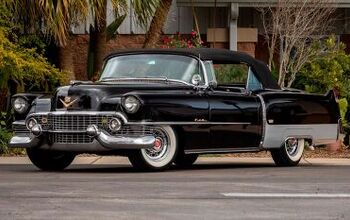Bailout Watch 384: International Scorecard V1.3

The developed nations of the world have all seen local car demand drop by about a third in recent months and are scrambling to save the home teams. For example, France’s Sarkozy, despite his supposed “center-right” political leanings, is but one of many national politicians speaking in protectionist terms: “We want to stop factories from relocating abroad, and if possible bring them back home.” Despite grumblings and mumblings from the WTO, EU and other multi-national pseudo-governments, little can be done to stop the instinct amongst the nations to take care of their own first. Hence, a rolling thunder of loans, grants, clunker scraping bills and so on; all designed to keep as many people on the home team going to work as possible. Be prepared, this storm is only just getting going. Here’s your latest Bailout Scorecard (PDF).

More by John Horner

































Comments
Join the conversation
This is scary stuff...of course the French are always happy to hand out government money, but this could really start a global avalanche of subsidies. The US started it, now the French join in. Who's next? I mean what's happening is that the market is saturated and car makers have been producing too many cars for quite some time. The credit crisis ended the excess that we've had before, but it's not just temporary. The market will go back up eventually, but it will not be able to support the amount of cars that it had before the crisis any time soon. So the only way out is to decrease the output by whatever method works best. Usually some uncompetitive companies just vanish or significantly restructure in order to be profitable at lower output levels. (I guess you all know which companies I'm talking about.) Anyway, by prolonging theses unprofitable companies' sufferings with government money means that otherwise profitable companies face major problems as well. So now it's no longer about which company has the best business model, but which government blinks first and refuses to further fund its industry. Eventually, the result will be the same, because car production has to go down. The only question is how much tax payers money will be burnt in the process.
John, there is a misconception about the EU. The EU works on unanimity (that's why it's slow and ponderous.) Big countries can't just railroad smaller ones. Actually, the expansion of the EU to the east is seen by many as a US ploy to render the EU ineffective: The more there are, the more can say no. It takes just a single no. The EU constitution for instance isn't going forward if only one country objects. The Financial Times writes today: "Prague, holder of the European Union’s rotating presidency, pre-empted a Franco-German demand for greater co-ordination of national responses to the economic crisis. It said the meeting was needed because of French economic nationalism. The summit is expected to take place at the end of this month. Mirek Topolanek, prime minister of the Czech republic, was still fuming on Monday after Nicolas Sarkozy, the French president, urged his country’s carmakers to close down plants in eastern Europe in return for state aid. Mr Topolanek warned that the French president’s remarks could endanger the passage of the Lisbon treaty, currently before the Czech parliament. “If someone wanted to seriously threaten the ratification of the Lisbon treaty, he could not have chosen a better means and time for it,” the Czech premier said in an interview with the Hospodarske Noviny daily." The "Lisbon Treaty" is a second attempt to get the European constitution back on track. The bigger countries want that treaty, because a European constitution would establish some majority rule. They will have to decide whether they want a constitution or some jobs back, which will not stay anyway.
John: Please source the statement "Plus, of course, ongoing strict restrictions on auto imports along with domestic ownership requirement for all manufacturing" in China. AFAIK, and I live here, there are no "strict restrictions on auto imports" to China. Exception: Used cars. Forbidden, unless you are a foreigner and you bring your own. Import duty on new cars: 25%. You can bring in whatever you like, as long as it passes inspection. If 25% import duty is deemed a "strict restriction on auto imports," then the U.S.A. has "strict restrictions on truck imports" - same 25% duty. "Domestic ownership requirement for all manufacturing" is wrong. There still is a joint venture requirement for certain industries deemed of strategic value. Building of new cars is one of them. I could set up a parts manufacturing company without domestic partnership tomorrow, and I would be most welcome everywhere in China. According to Chinacartimes, which appears to be a source you trust, the joint venture requirement to manufacture cars for sale in China is expected to fall next year. Also, the French cash4clunkers program is not tied to PSA and Renault. Would run grossly afoul of EU rules. You misunderstood the Autonews article that stated that Renault and PSA extended the government's 10 years and added their own cash4clunkers if people buy their cars. Of course, the larger market share of PSA and Renault in France makes them the prime recipients of the program.